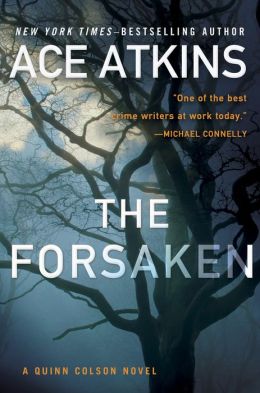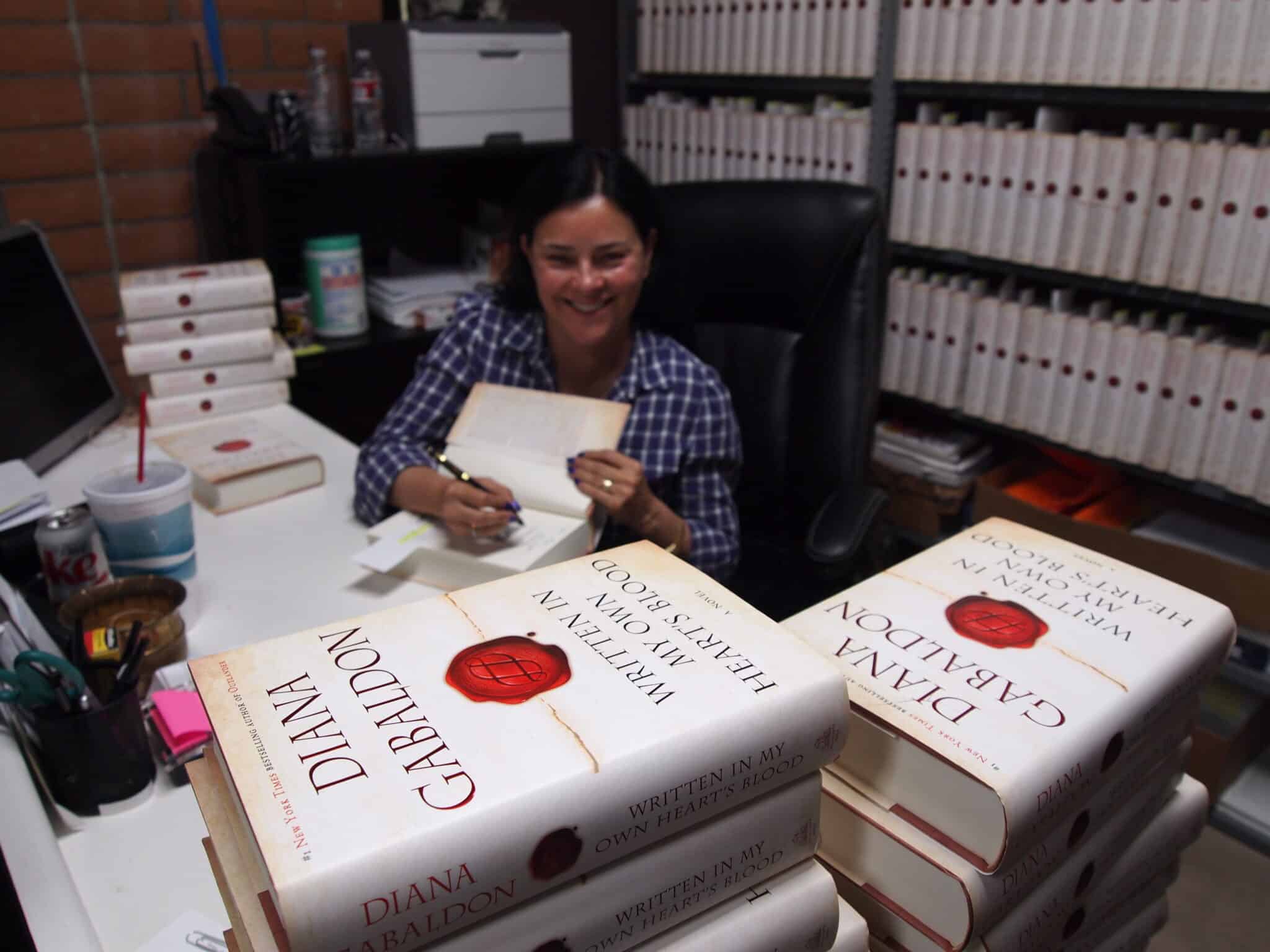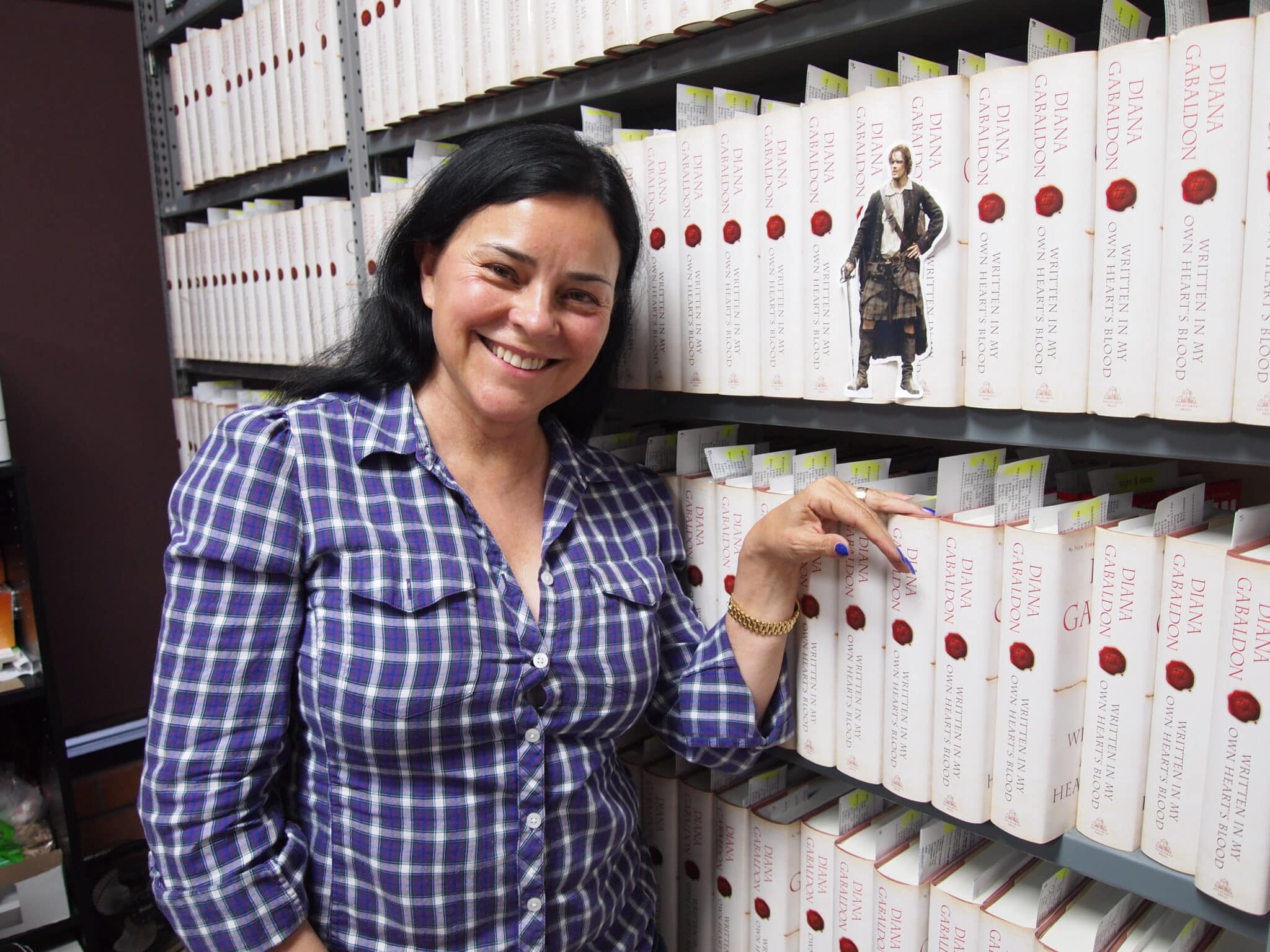In the August 2014 PART II edition of BookNews, you’ll find books for Chelsea Cain, William Kent Krueger, and a bunch of other favorites… Click here to view the PDF.
 poisonedpeeps
poisonedpeeps
test
here is the test.
The Writer’s Life

Ace Atkins: The Story of the Returning Soldier
Ace Atkins is a former journalist who received a Pulitzer Prize nomination for a series of articles investigating an old unsolved murder. He has written more than a dozen novels, among them the Quinn Colson series, about an Army Ranger who returns from Iraq and Afghanistan to become sheriff of his native Tibbehah County, Miss. (The author also resides in Mississippi with his family.) The fourth in the series, The Forsaken, was released July 24.
Atkins was also chosen by the Robert B. Parker estate to continue the late author’s popular series about famed private eye Spenser. The latest installment, Robert B. Parker’s Cheap Shot, was published in May.
Some nonfiction writers say they have a hard time writing fiction because they’d have to make everything up from scratch, while some fiction writers say they struggle with writing nonfiction because they have to stick to the facts and can’t shape the story to their liking. You’ve done both. Which form do you find easier?
I don’t think I really came into my own as a writer until I started to blend the two for my novels. My first four books were somewhat surreal, and it wasn’t until I started using my background as a reporter in my fiction that my stories took on an added dimension. My fifth novel, White Shadow, really changed everything for me in my writing style and approach to novels. I work much in the same way now with my Quinn Colson books.
That much said, I also still write stories for magazines, and the challenge–and the fun–is the hunt for the truth and those little details.
For novels, I take a huge amount of inspiration from the filmmakers of late ’60s and early ’70s and their commitment to realism. I don’t like to write characters; I like to write about people. I don’t really have a favorite. I enjoy alternating between fiction and reporting with the challenges and pleasures of each.

My longtime editor at G.P. Putnam asked me to consider developing a series character in contemporary times. Coming off four novels based on true stories set long ago, I was searching for someone specific to the South, where I live, and who offered an exciting story to play out in future books.
This was in 2010, after nine years of war in Afghanistan and Iraq. By this time, you’re talking about many thousands of young people who served their country–sometimes on multiple tours–returning home in big numbers. I kept on running across a lot of guys like Quinn in Mississippi. Some of them were friends in town who served in the [National] Guard; some, professional soldiers you’d meet here and there, once at a playground while our kids played together. The story of the returning soldier is as old as The Odyssey and as contemporary as the Billy Jack movies. It just seemed a perfect fit for these times and deep Mississippi.
The voice of the Spenser novels is different from the one in the Quinn Colson series. After you finish a book for one series, how much down time do you allow for the mental shift before you start work on the other series? Do you ever find one voice bleeding into the other?
That’s probably the toughest challenge I have. Spenser is unique and the style of the books is much different than my own. I probably have a harder time getting into the Spenser books because I’m thinking, “What would Robert B. Parker do?” With Quinn, there isn’t that added level of mental gymnastics.
Writing Quinn is as easy as slipping into a pair of well-worn cowboy boots. I usually take off a week or two to adjust. Listening to a different soundtrack–Spenser’s jazz to Quinn’s classic country–certainly helps.
You’ve said you write the Spenser novels in the spring and summer, so logic says you write the Colson books in the fall and winter. Is that a conscious decision to write the grittier novels when days are colder and darker?
That’s a great question! But it’s not my decision. It’s just how the production schedule falls. But no doubt some of the ominous feeling in the Quinn books comes from the lonely winters down South. It’s hard to be too brooding over a nice spring or summer day in Oxford, Miss., or in Boston.
Readers’ reactions to the Colson novels have included relief that your characters are multifaceted instead of caricatures. What are some of the biggest misconceptions you’ve seen in stories about the South?
Wow. That would take all day. I’m not a real fan of the way the South is portrayed in movies or TV. We always fall somewhere between Steel Magnolias and Mississippi Burning. As you’ll see in The Forsaken, I’m not an apologist for the Deep South’s rotten history. But as far as the New South, I like to show the complexity of the people. It goes back to what I learned from my favorite authors and those filmmakers from the 1970s. You write about the real stuff, not those redneck stereotypes. (Although I must admit some people I come across are even too wild for a comedy routine or my books.)
William Faulkner is among your influences, and characters in the Colson series even have Faulknerian names like Bundren and Varner. If the Colson books were taught in schools, what would be the course overview and the topics and themes you’d expect to see covered?
I’ve been fortunate to have some of my books taught in high school and college courses. For the Quinn novels, I think there’s much to discuss on the classic journey of the hero (along with studies on Joseph Campbell, who is a big part of my work), redemption, race, religion and, mainly, hypocrisy and greed. One thing that never changes in the South is the evil that rules when good men and women do nothing. I admire anyone, like Quinn and Lillie, who challenge an old and ingrained system.
What’s happening with the Quinn Colson TV pilot script you wrote with your wife, Angela?
The project is being developed with veteran Hollywood director/producer Jeremiah Chechik [Burn Notice; Chuck]. The process can be long and slow and we have a high level of hope the stories can be translated intact. All of us want to see a faithful telling of the Quinn stories and the world of Tibbehah County.
You have a complete John D. McDonald collection, including a novelization he wrote of a Judy Garland movie. If you were to write a book based on a movie, what would it be?
I’d like to do a novelization of 1973’s White Lightning. It’s a classic Southern action film with so many elements I love. I continue to draw a lot of inspiration from this film. —Elyse Dinh-McCrillis, blogger at Pop Culture Nerd
BookNews – Another Awesome August… Part 1
In the August 2014 edition of BookNews, you’ll find Books for William Kent Krueger, Spencer Quinn, Deborah Harkness and more… Click here to view the PDF.
BookNews – Fireworks for July…
In the July 2014 edition of BookNews, you’ll find Books for Daniel Silva, Brad Thor, CJ Box, and more… Click here to view the PDF.
BookNews – A Rich and Exciting June…
In the June 2014 edition of BookNews, you’ll find Books for Diana Gabaldon, Kevin Hearne, Martha Grimes, Ridley Pearson, and more… Click here to view the PDF.




